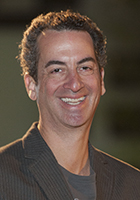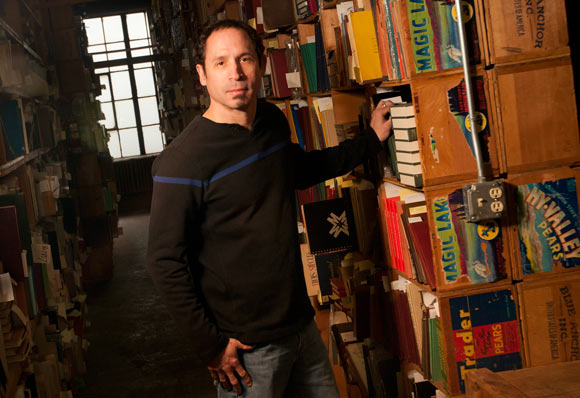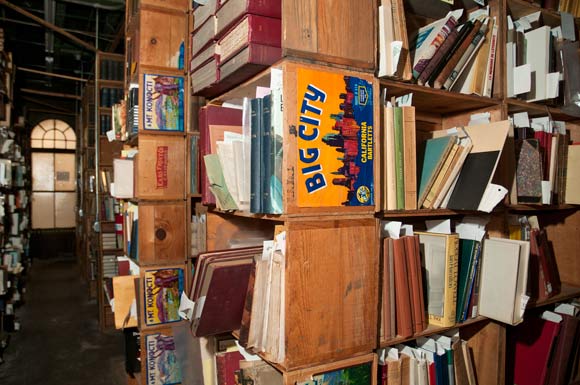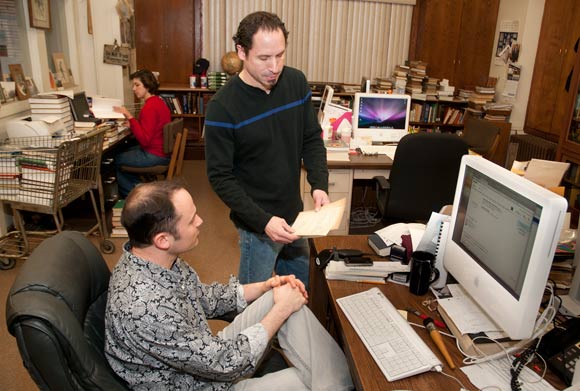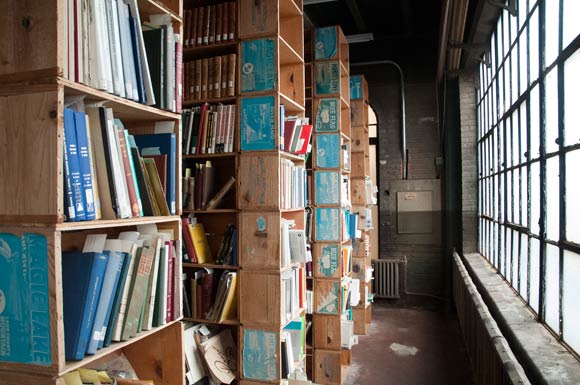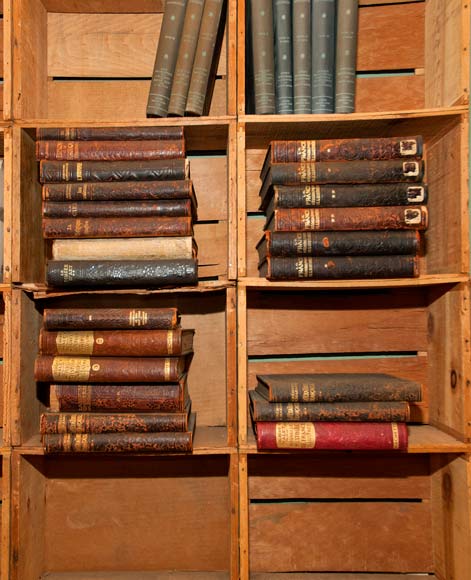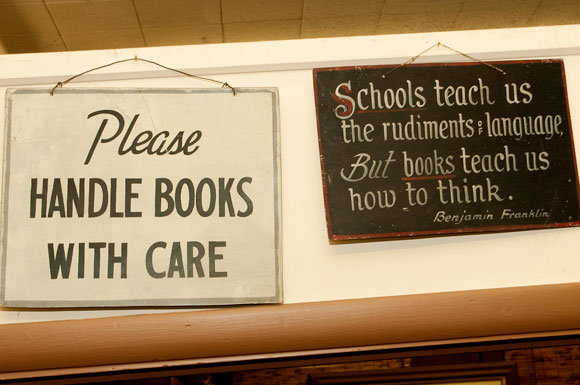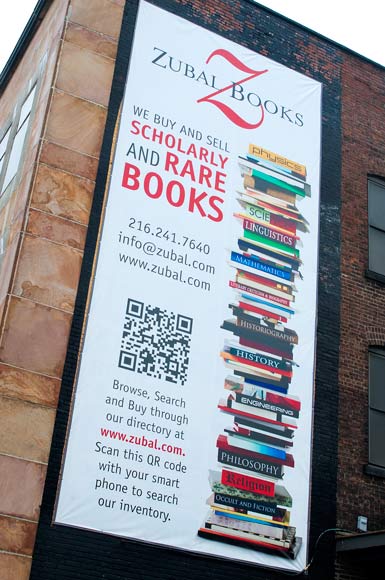the bookseller: four million books right under our noses
If the printed book business is dead, don't tell Mike Zubal. Swaddled by books since birth, Zubal has spent all of his 47 years surrounded by the printed page. His family's Zubal Books is one of the largest booksellers in the country, selling about a quarter million titles per year. Though you'd never know it, roughly four million books fill a nondescript warren of buildings about a mile from the West Side Market.
Never heard of the place? You're not alone.
Launched by Mike's father John in 1961, Zubal Books sells scholarly, obscure and out-of-print books -- what folks in the biz call antiquarian titles -- to mainly collectors, professors, philosophers and researchers. Arranged in dozens and dozens of subject areas, the books cover topics ranging from anthropology and linguistics to philosophy and the occult. If there is a Dan Brown novel on the premises, it likely is being used as a doorstop.
Thanks to the Internet, Zubal Books hasn't been open to the public since 1998. And according to Mike, it was the best thing that ever happened to the bottom line. Not only are they able to reach customers in all corners of the globe, they no longer have to deal with the vagaries of humanity.
"We no longer had stolen books, we no longer had missing books," explains Mike. "We used to find dust jackets in our parking lot. Why were we finding dust jackets in our parking lot? Because customers were opening windows on the third floor and throwing books out to grab on their way out."
Though closed to the public, Zubal Books still is open to the occasional visitor. Led by Mike, who wears a goatee and plays bass in a jazz band, the tours offer a singular journey through history, literature and pop culture. Filled with the knowledge of a million books, Mike makes a compelling guide. And like any great teller of tales, he begins with his origin story.
"As a teenager my dad collected books," he says. "By the time he was 17 years old, he had amassed the complete collection of Edgar Rice Burroughs, the creator of Tarzan. He took out an ad in the back of a fanzine advertising his collection. When he found somebody willing to pay what he was asking, he said, 'Man, I like selling books.'"
By 1973, John Zubal had been making enough money selling books that he was able to abandon academia life as a university professor. After filling multiple storage facilities about town -- not to mention the family home in Parma -- John went looking for a place to consolidate his collection.
When he walked into a 60,000-square-foot building once home to a religious publishing house, John said, "This is perfect!" recalls Mike. "We'll never fill this up!"
Of course, that is precisely what he did. In fact, it took only five years to fill every nook and cranny of that building with books. Using (now-vintage) wooden pear crates as their shelving system, the Zubals were amassing titles at a rate faster than they could allot them. So they expanded, erecting a steel structure that adjoined the building with a neighboring property. A few short years later, John bought and filled the neighboring property, too. When the local Hostess Bakery plant down the street went belly up, he grabbed that, too. Today, Zubal Books spans 360,000 square feet, cultivating more than eight acres of books.
Mike has been working in the family business since he was 11 years old. When he isn't entering inventory into the proprietary, labyrinthine catalogue system, he is on the hunt for new acquisitions. They come from libraries, universities, bookstores, personal collections, and the estates of the dearly departed.
"To me, the smell of books is a great smell -- it's the smell of money," says Mike.
Asked about some of his rarest gems, Mike describes one of only three known editions of Giovanni Boccaccio's The Decameron, hand-drawn on sheepskin vellum and gilded in real gold. In the market for a copy of Thomas Paine's revolutionary pamphlet Common Sense? It was originally published in 1776 -- and Zubal's got one. Housed in an off-site vault for safekeeping, these and other fine texts are all available for the right price.
Cold, dark, dank and musty as a neglected lake house, Zubal Books is no picnic for the 20 folks who work there. A recent highlight was when Anthony Bourdain filmed a stop during his Cleveland episode of No Reservations, urged to visit by mutual friend Harvey Pekar.
"Bourdain was here for about four hours," Mike recalls. "He's a really nice guy."
Asked how long books -- and Zubal Books -- will be around, Mike answers with a question of his own.
"If the Kindle signaled the death of the book, why didn't the cell phone mean the death of the wristwatch?" he asks in his roundabout style. "People are still buying watches, and people are still buying books. Not only are many of these books not digitized, they can't be digitized because of copyright. When people stop buying books, we'll know it's time to quit."
(A note: Mike and others in the rare book biz would appreciate if you stopped offering to sell your father's "rare and complete" set of National Geographic magazines. They are worth about as much to them as they are to you.)
Photos Bob Perkoski
